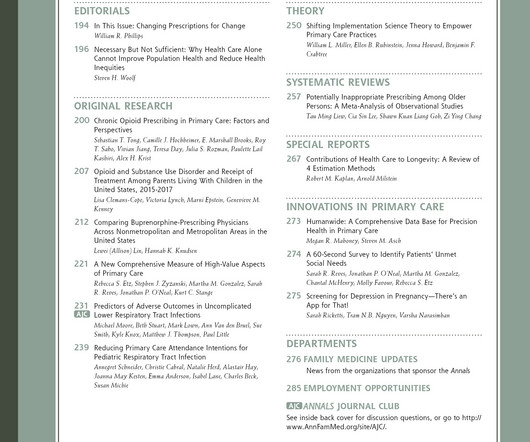Factors Associated with Accumulating Diabetes Complications in a Medicare Advantage Cohort to Inform a Prediction Tool [Diabetes and endocrine disease]
Annals of Family Medicine
NOVEMBER 20, 2024
Context: Complications contribute to significant type 2 diabetes mellitus (T2DM) morbidity. While preventable, many fail to receive timely treatment in primary care, leading the most vulnerable to accumulate complications. Results: We included 49,843 individuals in model 1.












Let's personalize your content